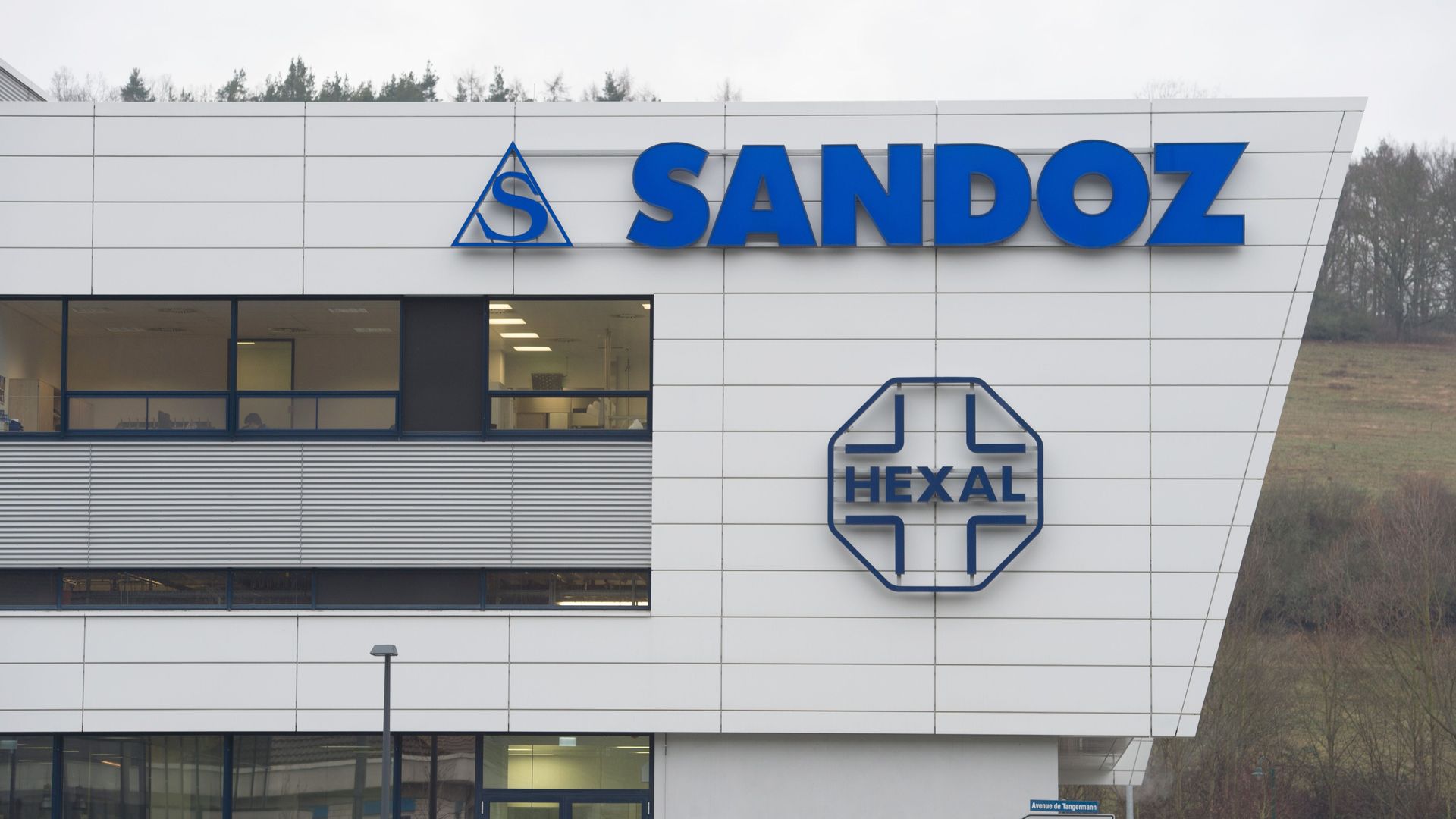Jun 11, 2020 - Health
More price-fixing lawsuits hit the generic drug industry
Add Axios as your preferred source to
see more of our stories on Google.

Sandoz, owned by Novartis, is facing more lawsuits. Photo: Sebastian Kahnert/picture alliance via Getty Images
